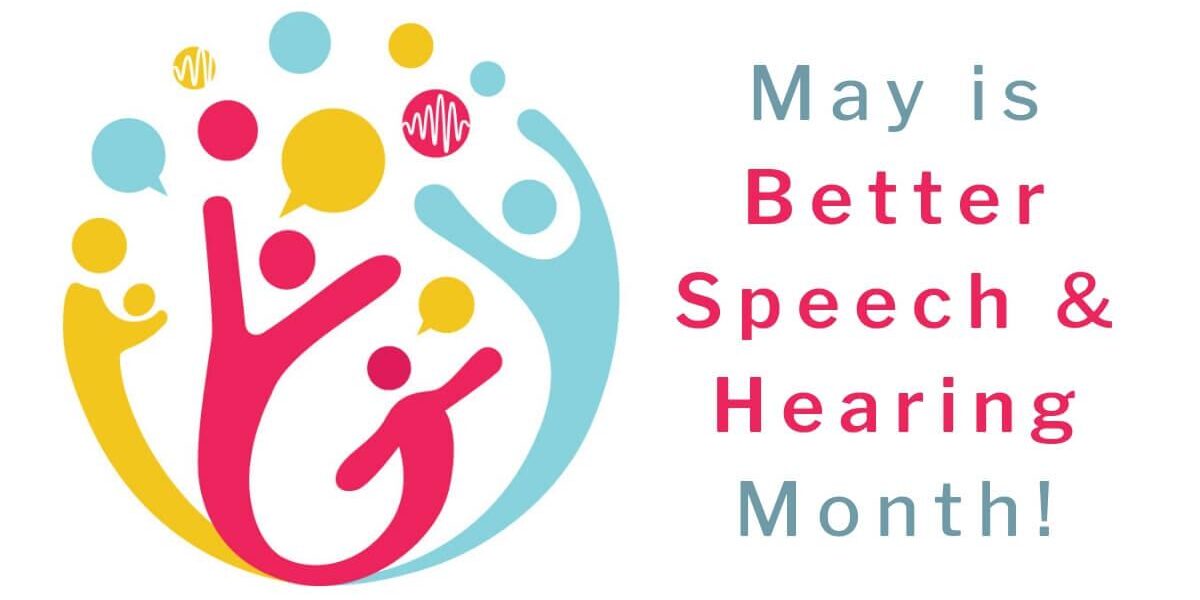Help us celebrate Better Speech, Language, and Hearing Month by learning a little more about what makes an SLP (speech-language pathologist).
What does an SLP do?
SLPs hear the question often: “You help kids with lisps, right?” While this is not wrong, it is only one of many things that SLP’s have the expertise to diagnose and treat. Here is a more comprehensive list:
- Speech sound disorders
- Expressive and receptive language delays/disorders
- Social pragmatic communication disorder
- Voice disorders
- Fluency disorders
- Resonance disorders
- Literacy deficits
- Cognitive communication disorders
- Apraxia and other oral motor disorders
- Tongue thrust
- Feeding and swallowing disorders (e.g., dysphagia)
- Aphasia
These disorders may be stand-alone, a symptom of another condition (e.g., Autism Spectrum Disorder or Down Syndrome), or caused by another factor (e.g., traumatic brain injury or stroke). Not only can SLPs evaluate, diagnose, and provide effective treatment for these disorders, but they are also experienced in recognizing other factors that may be contributing to the problem and frequently refer to dentists, otolaryngologists (ENTs), neurologists, developmental psychologists, audiologists, and gastroenterologists.
Who is an SLP?
An SLP, or speech-language pathologist can be found working in schools, private or hospital-based outpatient clinics, inpatient rehabilitation, NICU/PICU, and skilled nursing facilities. These professionals have completed a masters level degree or higher in Speech-Language Pathology, clinical practicums, internships, and a clinical fellowship. SLPs continue their professional development throughout their careers at a requirement of 30 hours every three years. Some SLPs become specialists in a particular area, or obtain certifications in specific modes of treatment.
Other professionals in the field include SLP-CFs and SLPAs. SLP-CFs are speech-language pathologists in the process of completing their clinical fellowship. They have all the same abilities as an SLP, but work under the supervision of an SLP as they gain more experience in the practice. SLPAs are speech-language pathology assistants. These professionals typically have graduated with a bachelor degree in Communication Sciences and Disorders and have completed required observation of speech-language therapy sessions. SLPAs are able to provide speech-language therapy under the guidance of an SLP. SLPAs have extensive training and experience delivering therapy services and often have wonderful clinical skills, though they do not evaluate, diagnose, or develop treatment plans.
Who can see an SLP?
Anyone, of any age, who is experiencing a concern with their communication or swallowing abilities can see an SLP! Most major insurances cover speech-language therapy services, though a physician’s referral may be required. While some therapy clinics may serve all ages, others are dedicated to the treatment of specific age groups. At our ABLE Health Tukwila clinic, we provide pediatric speech-language therapy to individuals from 0-21 years. If you would like to initiate speech-language therapy for your child, you can give us a call at (206) 458-5360.

